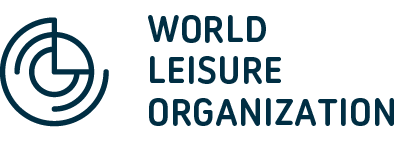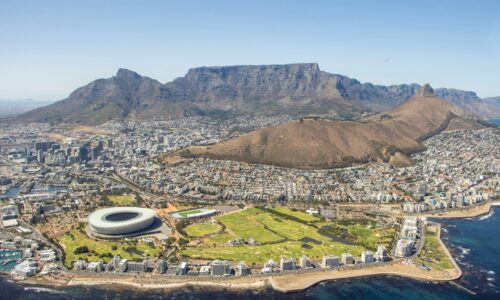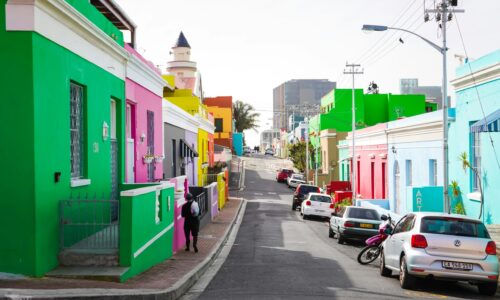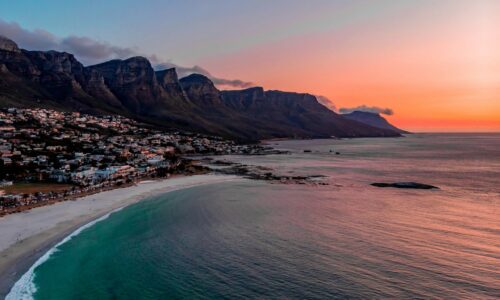Theme
Sustainable Recreation Programs for Active Communities of the City of Cape Town Metropol
The Leisure Experience Research Opportunity (LERO) provides opportunities for World Leisure Centres of Excellence, the World Leisure Young Ambassadors and students from other interested institutions to participate in an international orientated field research project aimed at assessing the recreation programs to foster active communities in the City of Cape Town Metropol (CoCT). LERO will take place in Cape Town and will be hosted by the University of the Western Cape. In addition to LERO, students will have the opportunity to attend the World Leisure Young Ambassadors Student Conference and the Leisure and Tourism Conference 2024 (LTC2024) hosted by the University of the Western Cape. The Cape Peninsula University of Technology, North West University and Tshwane University of Technology will collaborate in the Conference serving on the Scientific panel for the abstracts of the LTC2024.
Key dates
24 September – Arrival and welcome at the Princess Vlei Eco Centre in Cape Town
25 September – 1 October – Field work, presentation and report on research findings
2 October – World Leisure Young Ambassadors Student Conference – Present LERO project
3 October – LTC2024 – Present LERO project
4 October – Departure date
Host City Information (Cape Town, South Africa)
Cape Town is a vibrant city located in South Africa, known for its breath-taking scenery and natural beauty, vibrant diverse culture, and a rich history. Whether you are drawn to the majestic Table Mountain, the caerulean waters of the Atlantic Ocean, the bustling streets alive with colour and diversity or the vibrant markets of Greenmarket Square and the delicious flavours of Cape Malay cuisine, Cape Town offers an unforgettable experience.
Cape Town is situated on the southwest coast of South Africa, at the northern end of the Cape Peninsula. It is bordered by the Atlantic Ocean on the west and the Indian Ocean on the south. It has prominent landmarks and attractions such as Table Mountain, one of the 7th wonders of the world, that offers breath-taking views of the city and the surrounding coastlines. Visitors can hike of take a cable car to the summit. Cape Point is located within the Table Mountain National Park and is known for its rugged cliffs and panoramic ocean views. AS a UNESCO World Heritage Site, Robben Island is where Nelson Mandela was imprisoned for 18 years. It’s now a museum and a symbol of South Africa’s struggle against apartheid. One of the world’s most beautiful botanical gardens, Kirstenbosch National Botanical Garden, showcases indigenous flora and offers scenic walking trails. The V&A Waterfront is a popular tourist destination with shops, restaurants, and entertainment options, including the Two Oceans Aquarium.
Cape Town is a melting pot of cultures, with influences from African, European, and Asian communities. It has a vibrant arts scene, with galleries, theatres, and music venues showcasing a range of talents.
Cape Town has a colonial history dating back to the 17th century when it was established as a refreshment station by the Dutch East India Company. The city played a significant role in the struggle against apartheid, with notable figures like Nelson Mandela emerging from the region. Since the end of apartheid, Cape Town has undergone significant development and transformation, although challenges such as inequality and urban sprawl remain.
Cape Town’s economy is diverse, with sectors such as tourism, finance, manufacturing, and technology playing key roles. Tourism is a major driver of the local economy, attracting millions of visitors each year to explore the city’s attractions, natural beauty, and cultural offerings. Like many cities, Cape Town faces challenges such as housing affordability, transportation issues, and environmental concerns. Water scarcity has been a significant issue in recent years, leading to innovative water conservation efforts.
Cape Town has a Mediterranean climate, with warm, dry summers and mild, wet winters. The summer months (December to February) are popular for outdoor activities, while winter (June to August) is a quieter time for tourism but still offers pleasant weather for exploring.
Overall, Cape Town is a dynamic city with a unique blend of natural wonders, cultural heritage, and modern amenities, making it a top destination for travellers from around the world. Every moment spent in Cape Town is filled with wonder and discovery. So, as you pack your bags, embarking on a journey to the Mother City, prepare to be enchanted by all that Cape Town has to offer.
Getting to Cape Town is easier than ever, with several flights connecting the city to major hubs worldwide. Upon arrival at Cape Town International Airport, you’ll be greeted by the warm African sun and the friendly South African people.
For those who prefer convenience and comfort, renting a car provides the flexibility to explore the city and its surrounding areas at your own pace. Alternatively, public transportation options such as MyCiti buses and Uber offer affordable and efficient ways to navigate Cape Town and its diverse neighbourhoods.
Cape Town boasts a wide range of accommodation options to suit every taste and budget.
From luxurious waterfront hotels offering panoramic views of the ocean to cosy guest houses nestled in the heart of the city’s historic neighbourhoods, there’s something for everyone and every budget.
For more information visit www.capetown.travel
Information on the City of Cape Town (Municipality) Recreation and Parks Department
The City of Cape Town Municipality Recreation and Parks Department is responsible for managing and maintaining public recreational spaces, parks, and green areas within the city. This department plays a vital role in enhancing the quality of life for residents and visitors by providing accessible and well-maintained outdoor spaces for leisure, sports, and community activities.
The Recreation and Parks Department has the vision to get communities active in creating a vibrant and healthy city as their main goal. This is a shared vision for all residents and visitors, across the lifespan, to have access to safe and diverse recreation and sport opportunities, to be physically active in their daily lives, as a means of improving individual and community health and wellbeing and contributing to the community development
With Active Communities at the centre of their focus, their priority projects, programmes and initiates are geared towards achieving this goal. Their goal is aligned with the Cities Integrated Development Plan, strong and capable governance, generating interventions that are integrated and inclusive, and close collaboration and partnerships to achieve the reach and impact we envision form the foundation. Their goal is also aligned within the framework of the National Sport and Recreation Plan’s vision to build “an Active and Winning Nation”, the Recreation and Parks Department gears its programmes towards two main outcomes: 1) preparing a foundation to participate in sport (Winning Nation) and 2) to improve health and wellbeing of the nation (Active Nation). To achieve this, they must strive for all people across the city to have access to opportunities to participate in recreation and play sport.
The Department will offer ‘Active Communities’ programmes that are designed to activate and captivate all ages. Programmes will progress across the lifespan from childhood to late adulthood that is developmental in nature for children and youth, and focussed on health and wellbeing for adults and seniors. Fun and social engagement are at the centre of each programme.
Research Goals
The research aim is to explore the personal experiences and reflections of LERO participants on sustainable recreation programs in active communities, within a cultural context to understand the phenomena from an insider’s perspective.
This auto-ethnographic research can provide valuable insights into the lived experiences, complexities, and nuances of promoting sustainability and well-being through recreational activities, contributing to a deeper understanding of this important societal issue.
The project will support the following UNESCO Sustainable Development Goals that should be taken into consideration:
Objectives
- To explore and describe the experiences and insights of the active community recreation programs of the CoCT that aim to promote environmental sustainability, social inclusion, and healthy lifestyles. (Active engagement)
- To explore and describe the program activities, interactions with others, challenges faced, and moments of learning or inspiration (Reflective journaling and observations)
- To explore and describe how LERO participants’ personal identity, values, beliefs, and cultural background influence their perceptions and behaviours related to sustainability and active living. (Self-reflection)
- To identify and analyse key moments of personal growth, learning, and transformation that occur as a result of LERO participants’ participation in sustainable recreation programs. (Reflective journaling and observations)
- To explore creative solutions, coping strategies, and lessons learned from challenges, barriers, and dilemmas encountered in navigating sustainable recreation programs. (Reflective journaling and observations)
Research methods and approach
Students from WLCE’s, the WLYA and Universities representing different countries across the globe, will participate in the project. Students will be expected to do some preparation work and also to participate in a series of online workshops and discussions prior to their arrival in South Africa. Upon arrival, students be divided in groups and will experience the recreation programs offered by the City of Cape Town (Municipality of Cape Town) over a period of two days. During their visit students will individually make auto ethnographical field notes of their experiences and observations. Students can also draw maps of the area in which the programs take place and take some photos. These field notes, maps and photos will be shared with the larger group and organised into patterns, categories and descriptive units to look for a relationship between them. The final two days of the project is reserved for preparing and delivering a presentation to the CoCT and at the WLYA Student Conference and the LTC2024. In addition, a short report of the main research findings will be compiled.
The methodological approach that this research will employ is the auto-ethnographical research method:
‘The first contribution of auto-ethnography in leisure research is that it creates unique opportunities for rich, vibrant, often playful, and engaging writing….A second distinctive contribution of auto-ethnographical texts lies in the forthright visibility of the researcher in the setting, group, or activity she or he describes.’ (Anderson & Austin, 2012: pg 139-140)
Project Phases
Phase 1: Preparation at home
Students must visit a community recreation program in their country to explore insights of the active community recreation programs that aim to promote environmental sustainability, social inclusion, and healthy lifestyles. They should take notes and reflect how these programs are influenced by their culture.
Additionally, students should conduct a literature search on the topic of sustainable recreation programs in active communities. Compile an annotated bibliography of the journal articles. An annotated bibliography it is a list of citations to articles, and documents. Each citation is followed by a brief descriptive and evaluative paragraph which constitutes the annotation. The purpose of the annotation is to inform the reader of the relevance, accuracy, and quality of the sources cited.
Phase 2: Online work sessions
In phase 2, students will participate in online sessions where they will be orientated on the Cape Town and the work of the City of Cape Town Department of Recreation and Parks. Students will also receive a workshop in the research methodology and academic writing skills for publication writing . Students will also be introduced to one another and organised into groups to do some group discussions in preparation of their fieldwork in Cape Town.
Phase 3: Field Work
Students will experience active community recreation programs in Cape Town for two days. During the two day of the visit they will take extensive and detailed auto-ethnographical field notes about their experiences, by writing down what they experience, by taking pictures, drawing maps and by recording short videos of the highlights that they encounter. These field notes form the basis for the two research deliverables – a written report and a verbal presentation.
Phase 4: Analyse field data (Sunday morning)
In phase 4, students will work under close supervision of the project supervisors on a thematic analysis of the field notes. In this phase, field notes are worked out per designated group that experienced the program together, and are then shared in the larger group in order to find how their experiences are different or similar to other groups, their cultural backgrounds, and which of these experiences are common across cultural backgrounds. Recurrent themes will be identified, which will serve as organizing principles for the report and presentation.
Phase 5: prepare deliverables (Sunday afternoon and Monday morning)
The final phase of the project involves preparing a written report and a verbal presentation of the research findings.
